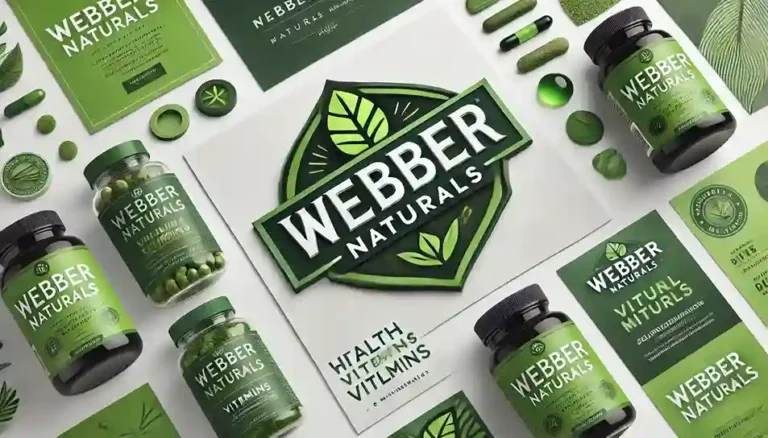Our bodies are like intricate machines, constantly working to maintain health and well-being. To keep this machine running smoothly, we need essential nutrients – building blocks our body can’t produce on its own. By incorporating these vital elements into our diet, we fuel our growth, repair tissues, and support overall function.
Let’s delve into 5 essential nutrients that deserve a starring role in your daily routine:
1. Protein: The Building Blocks of Life
Protein, alongside carbohydrates and fats, is a macronutrient. Think of protein as the body’s building blocks. It’s crucial for the structure, function, and regulation of tissues and organs, from your mighty muscles to your hardworking enzymes. Antibodies, the soldiers of your immune system, are also crafted from protein.
Fueling Your Protein Needs:
- Plain Greek Yogurt: A protein powerhouse with a creamy texture, perfect for breakfast or a snack.
- Eggs: A versatile and affordable protein source, enjoyed scrambled, boiled, or even whisked into omelets.
- Fish: Excellent sources of protein and omega-3 fatty acids, essential for heart and brain health. Think salmon, tuna, or sardines.
- Beef and Chicken: Lean cuts of beef and chicken provide a hefty dose of protein for building and maintaining muscle mass.
- Nuts, Seeds, Beans, and Legumes: Don’t underestimate the plant-based protein powerhouses! Almonds, walnuts, lentils, and chickpeas are all excellent choices.
2. Healthy Fats: Not All Fats Are Created Equal
Fats are often demonized, but they play a vital role in our health. They’re needed to build cell membranes, protect nerves, and provide sustained energy. Additionally, fats help us absorb vitamins A, D, E, and K, all vital for various bodily functions.
The key lies in choosing the right kind of fats. Focus on incorporating these healthy options:
- Saturated Fats: Opt for grass-fed, organic sources like beef and dairy products (butter, cheese) or coconut oil.
- Monounsaturated Fats: Drizzle olive oil on salads, enjoy avocados and olives, or snack on nuts and seeds.
- Omega-3 Fatty Acids: Fatty fish like salmon, sardines, and mackerel are rich in omega-3s. Plant-based options include flaxseed oil, walnuts, and edamame.
Minimize or avoid:
- Trans Fats: Often found in processed foods, these fats can contribute to heart health issues.
- Processed Vegetable Oils: High in omega-6 fatty acids, these oils can contribute to inflammation when consumed in excess.
3. Fiber: The Gut’s Best Friend
Fiber is a type of carbohydrate that our bodies can’t fully digest. But don’t underestimate its importance! Fiber promotes digestive health, regulates blood sugar levels already in a normal range, and supports a healthy heart.
Most Americans fall short on their daily fiber intake. Here’s how to add more:
- Fruits and Vegetables: They’re nature’s fiber powerhouses. Load up on a colorful variety!
- Beans and Lentils: Toss them into soups, salads, or enjoy them as a hearty main dish.
- Whole Grains: Choose quinoa, brown rice, or barley over refined grains like white bread or pasta.
- Chia Seeds and Ground Flaxseeds: Sprinkle them on oatmeal, smoothies, or yogurt for a fiber and nutrient boost.
4. Vitamin D: The Sunshine Nutrient
Vitamin D is a unique nutrient because our bodies can actually produce it when exposed to sunlight. However, sun exposure can be limited depending on location, season, and lifestyle. Vitamin D plays a critical role in bone health, immune system function, and nervous system support. Recent research suggests it may also impact mood and pregnancy health.
Optimizing Your Vitamin D Levels:
- Sunlight Exposure: Spend some time outdoors each day, but be mindful of sunburn risks.
- Fatty Fish: Salmon, sardines, and mackerel are good dietary sources of vitamin D.
- Supplementation: Consult your doctor to determine if a vitamin D supplement is right for you.
5. Water: The Body’s Essential Fluid
Water is often overlooked, but it’s the most crucial nutrient for our survival. Our bodies are composed of mostly water, and it’s essential for regulating body temperature, digestion, and waste elimination. It also lubricates joints and transports nutrients throughout the body.
Staying Hydrated:
- Monitor Your Urine: Aim for clear urine, indicating proper hydration. Dark urine suggests dehydration.
- Drink Throughout the Day: Aim for half your body weight in ounces of water daily. Carry a reusable water bottle and sip frequently.
- Infuse with Flavor: Add slices of cucumber, lemon, or berries to your water for a refreshing twist.
- Enjoy Herbal Teas: Herbal teas are a delicious and caffeine-free way to increase your fluid intake.
- By incorporating these essential nutrients into your diet, you’re providing your body with the building blocks it needs to thrive. Remember, a balanced and varied diet is key. Consult a healthcare professional for personalized guidance on optimizing your nutrient intake and overall health.
Note:"The information provided is not a substitute for professional medical advice."Reference:
- Academy of Nutrition and Dietetics. (2023, October 26). Essential Nutrients for Your Health. EatRight.org. https://www.eatright.org/
- Cleveland Clinic. (2021, March 10). Protein. Cleveland Clinic. https://medlineplus.gov/genetics/understanding/howgeneswork/protein/
- Mayo Clinic. (2023, August 30). Fiber: How adding it to your diet can benefit your health. Mayo Clinic. https://www.eatingwell.com/article/287742/10-amazing-health-benefits-of-eating-more-fiber/
- National Institutes of Health Office of Dietary Supplements. (2022, September 28). Vitamin D: Dietary Supplement Fact Sheet. National Institutes of Health (.gov). https://ods.od.nih.gov/Research/VitaminD.aspx
- U.S. Department of Agriculture. (2020, December). MyPlate. (.gov). https://www.myplate.gov/

1 thought on “5 Essential Nutrients Your Body Craves for Optimal Health”
This is a crucial subject—keep producing such remarkable content! Someone shared their personal weight loss story, highlighting the difficulties they encountered before discovering the Diet-To-Go Meal Service. They noted that the pre-portioned meals saved them time and supported their commitment to their goals. The conversation is a reminder of how essential balance is to the weight loss journey. For those who may find it useful, here’s the link they provided.